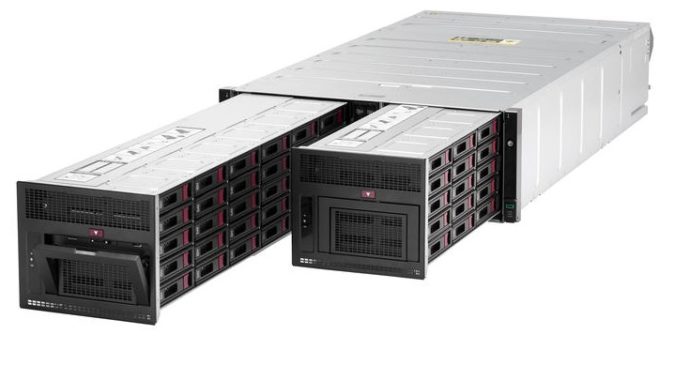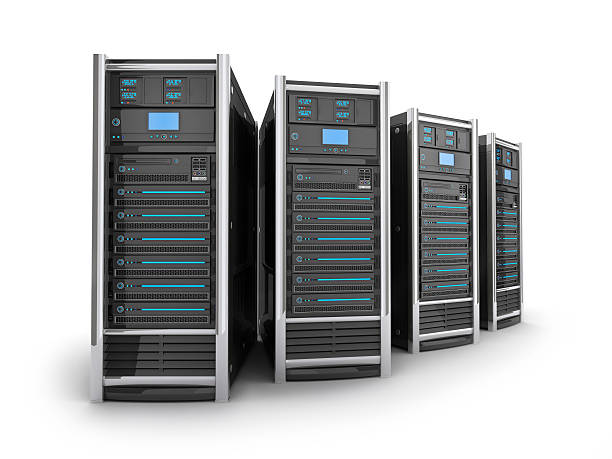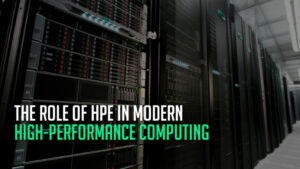The Role of HPE in Modern High-Performance Computing
High-performance computing (HPC) stands at the forefront of innovation in an age of rapidly evolving technological advancements. With the ability to process vast amounts of data at incredible speeds, HPC has become the driving force behind groundbreaking discoveries, simulations, and analyses across various industries. Hewlett Packard Enterprise (HPE) is at the heart of this revolution, a leading provider of cutting-edge technologies that empower modern HPC systems.
As the demand for processing power continues to soar, HPE plays a pivotal role in shaping the future of high-performance computing. Through their relentless pursuit of technological excellence, HPE has developed a comprehensive portfolio of solutions tailored to meet the unique demands of modern HPC workloads.
Therefore, one of the critical contributions made by HPE lies in its commitment to developing scalable and efficient supercomputing systems. HPE’s expertise in designing and building state-of-the-art architectures enables organizations to tackle complex computational problems quickly and precisely.
High-Performance Computing (HPC)

High-Performance Computing (HPC) refers to using advanced computer technologies and architectures to carry out complex computational tasks at a breakneck speed. HPC systems are designed to provide significant computational power, enabling them to tackle large-scale scientific, engineering, and data-intensive problems.
The primary objective of HPC is to enable scientists and researchers to process massive amounts of data and solve complex problems more efficiently than traditional computing methods. By employing powerful parallel processing techniques, HPC systems can divide tasks into smaller subtasks executed simultaneously on multiple cores or processors. This parallelization strategy allows for faster computation, as the workload is distributed efficiently across the available resources.
One of the fundamental principles behind HPC is scalability. HPC systems are designed to scale in processing power and data storage capacity. This scalability enables researchers to handle increasingly larger datasets and perform computations with higher accuracy. Furthermore, HPC systems can be scaled by adding more compute nodes or upgrading the existing infrastructure, providing flexibility and accommodating the growing needs of the users.
Hewlett Packard Enterprise (HPE)

Hewlett Packard Enterprise (HPE) is a global technology company that offers a wide range of products and services for businesses of all sizes. So with its headquarters in Palo Alto, California, HPE has established itself as a leader in the IT industry.
Hewlett-Packard Company split into two separate entities, Hewlett Packard Enterprise and HP Inc., in 2015, founding HPE. So the split allowed companies to focus more effectively on their respective markets and customers. HPE primarily provides enterprise-level solutions, including servers, storage, networking, software, and consulting services.
Therefore, one of HPE’s key strengths lies in its ability to deliver innovative products and solutions to meet the evolving needs of businesses. So the company invests heavily in research and development to fuel technological advancements and maintain a competitive edge. HPE has introduced several groundbreaking technologies, like memory-driven computing, which uses an entirely new architecture to process data faster and more efficiently.
HPE’s product portfolio encompasses various solutions designed to optimize business operations. Their server offerings include systems tailored for various workloads, such as high-performance computing, virtualization, and data analytics. So storage solutions offered by HPE are known for their scalability, reliability, and performance, enabling organizations to handle massive amounts of data seamlessly.
HPE’s Contribution to the HPC Ecosystem

In the rapidly evolving world of technology, High-Performance Computing (HPC) stands as a beacon of innovation, powering some of the most complex and critical computational tasks across various industries. At the heart of this revolution, Hewlett Packard Enterprise (HPE) has emerged as a critical player, significantly contributing to the HPC ecosystem through technological advancements, collaborations, and a vision for the future. This blog explores HPE’s contributions to the HPC ecosystem, highlighting its role in shaping the present and future landscapes of high-performance computing.
A Tradition of Excellence
A tradition of excellence and innovation marks HPE’s journey in the HPC market. From developing some of the earliest supercomputers to creating state-of-the-art HPC solutions, HPE has consistently pushed the boundaries of what’s possible. So the company commits its extensive portfolio, including HPE Cray supercomputers and HPE Apollo systems, to providing scalable, flexible, and powerful computing resources that meet the diverse needs of researchers, scientists, and businesses.
Technological Innovations
Its technological innovations are at the core of HPE’s impact on the HPC ecosystem. HPE has been at the forefront of integrating cutting-edge technologies into its HPC solutions to enhance performance, efficiency, and scalability. Innovations such as silicon photonics, high-density compute storage, and advanced cooling techniques have set new standards in the industry, enabling more sustainable and cost-effective HPC operations.
Furthermore, HPE’s software solutions, like the HPE Performance Cluster Manager and HPE Data Management Framework, offer robust tools for managing complex HPC environments, optimizing performance, and ensuring data integrity across large-scale computing infrastructures.
Fostering Collaborations and Partnerships
Understanding the importance of collaboration in advancing HPC technologies, HPE has established numerous partnerships with other tech giants, research institutions, and governmental agencies. So these collaborations foster innovation, drive research and development, and solve some of the world’s most challenging computational problems. For instance, HPE’s involvement in developing exascale computing systems, such as the Frontier supercomputer, underscores its commitment to pushing the boundaries of computational power and efficiency.
Pioneering Exascale Computing
Exascale computing represents the next frontier in HPC, offering unprecedented computational power to tackle problems in areas such as climate research, genomic analysis, and materials science. So HPE has been instrumental in the race towards exascale computing, contributing expertise, technology, and resources to develop systems capable of performing a billion (quintillion) calculations per second. This effort highlights HPE’s leadership in HPC and its dedication to advancing scientific research and innovation.
Envisioning the Future
HPE’s vision for the future of HPC is both ambitious and forward-thinking. Recognizing the potential of emerging technologies like AI, quantum computing, and edge computing, HPE is investing in research and development to integrate these technologies into future HPC solutions. This vision includes creating more energy-efficient computing systems, developing software-defined infrastructures that can adapt to varying workloads, and ensuring that HPC resources are accessible to a broader range of users.
Embracing Challenges and Opportunities
As the HPC landscape continues evolving, HPE faces challenges and opportunities. Technological advancements, environmental concerns, and the competitive landscape pose significant challenges. However, these also present opportunities for HPE to lead in sustainability, drive innovation, and contribute to education and workforce development in the HPC sector.
To Conclude
HPE occupies a pivotal position in the realm of modern high-performance computing. With technology progressing at an unprecedented pace, there emerges a critical need for enhanced processing speeds and more effective data management. In response to these burgeoning demands, HPE has stepped up, crafting innovative solutions designed to address the continuously escalating computational requirements of our contemporary era.
HPE has enabled researchers, scientists, and businesses to push the boundaries of what is possible in scientific research, artificial intelligence, and big data analytics through their innovative hardware and software offerings. So Their powerful supercomputers, robust storage systems, and advanced networking solutions have transformed how organizations approach complex computations and data analysis.
Moreover, HPE’s commitment to sustainability is commendable. They have focused on developing energy-efficient technologies that minimize environmental impact and reduce operational costs for their clients—this dedication to eco-friendly solutions positions HPE as a leader in responsible computing.
ICT Distribution Myanmar is highly regarded for its extensive expertise as a distinguished HPE server distributor in Nepal. The company has earned a prestigious reputation for delivering top-notch HPE servers at competitive prices. For those seeking to acquire HPE servers, we cordially invite you to confidently reach out to ICT Distribution Myanmar without any hesitation.
READ MORE:
https://ictdistribution.net/mm/blog/2023/12/28/reliability-of-hpe-msa-storage/
Latest Posts


Maximize Your Online Security with Entrust Digital Certificates
Beyond Antivirus: Why Kaspersky Total Security is Your 2024 Digital Guardian




